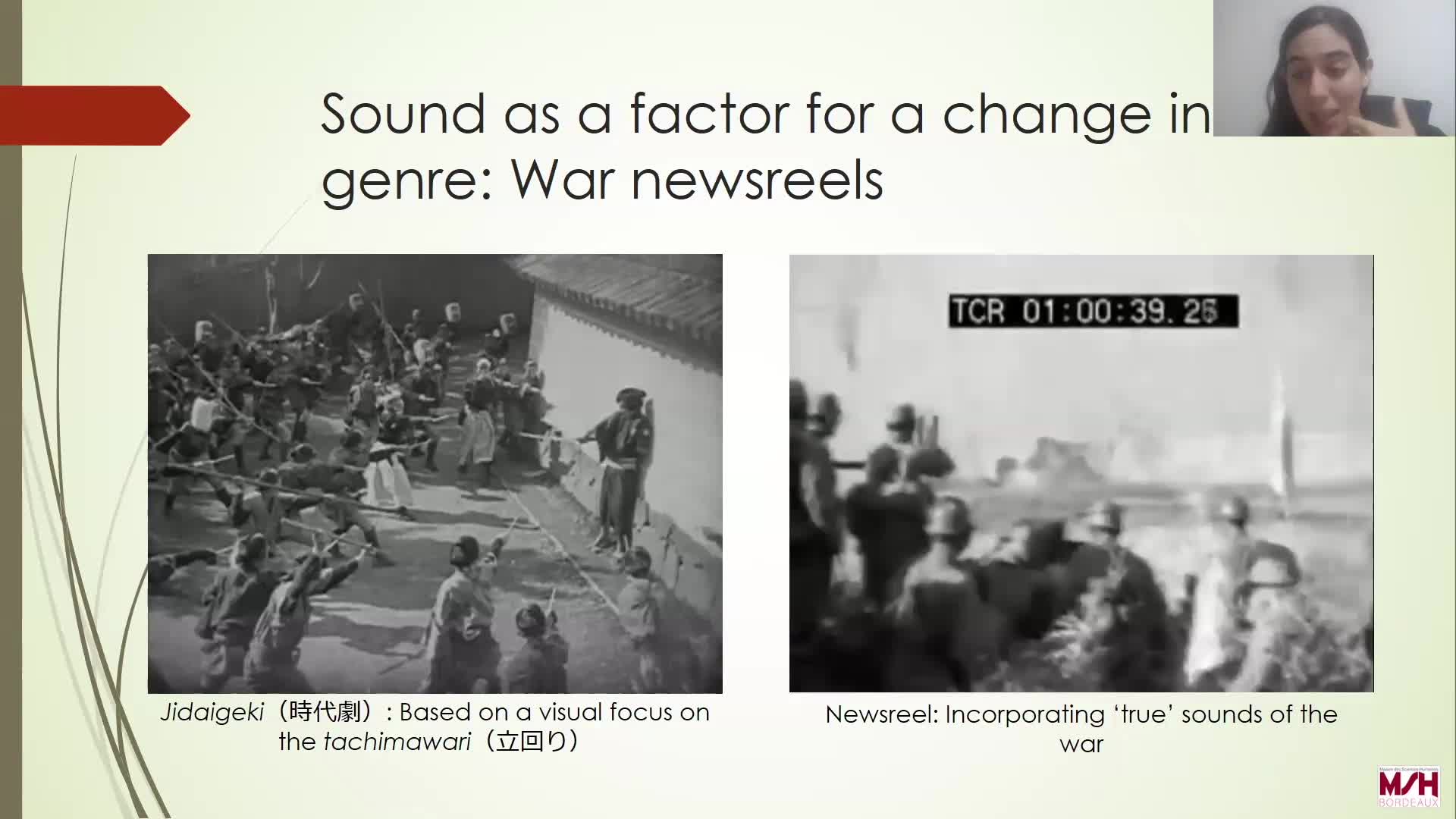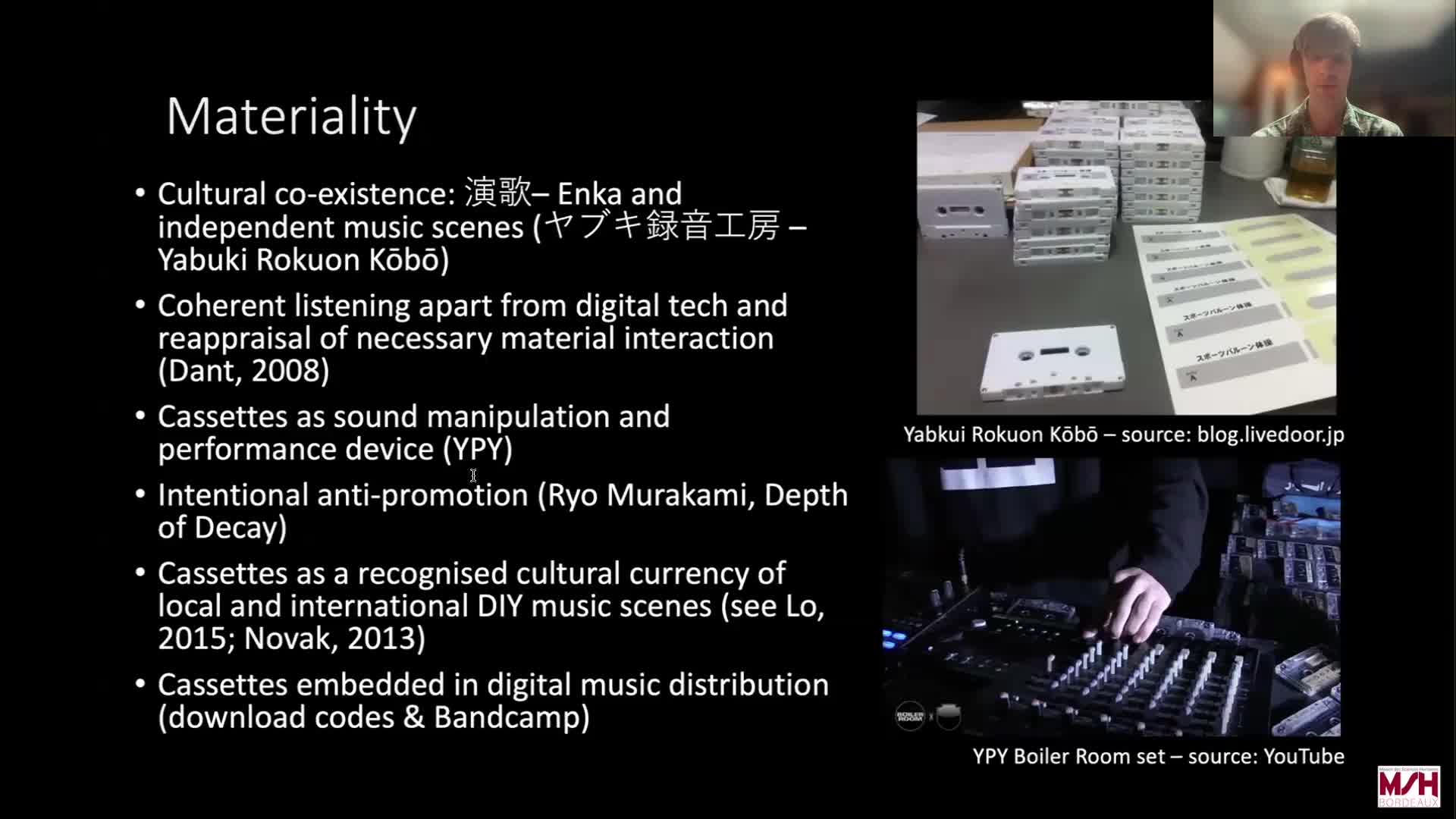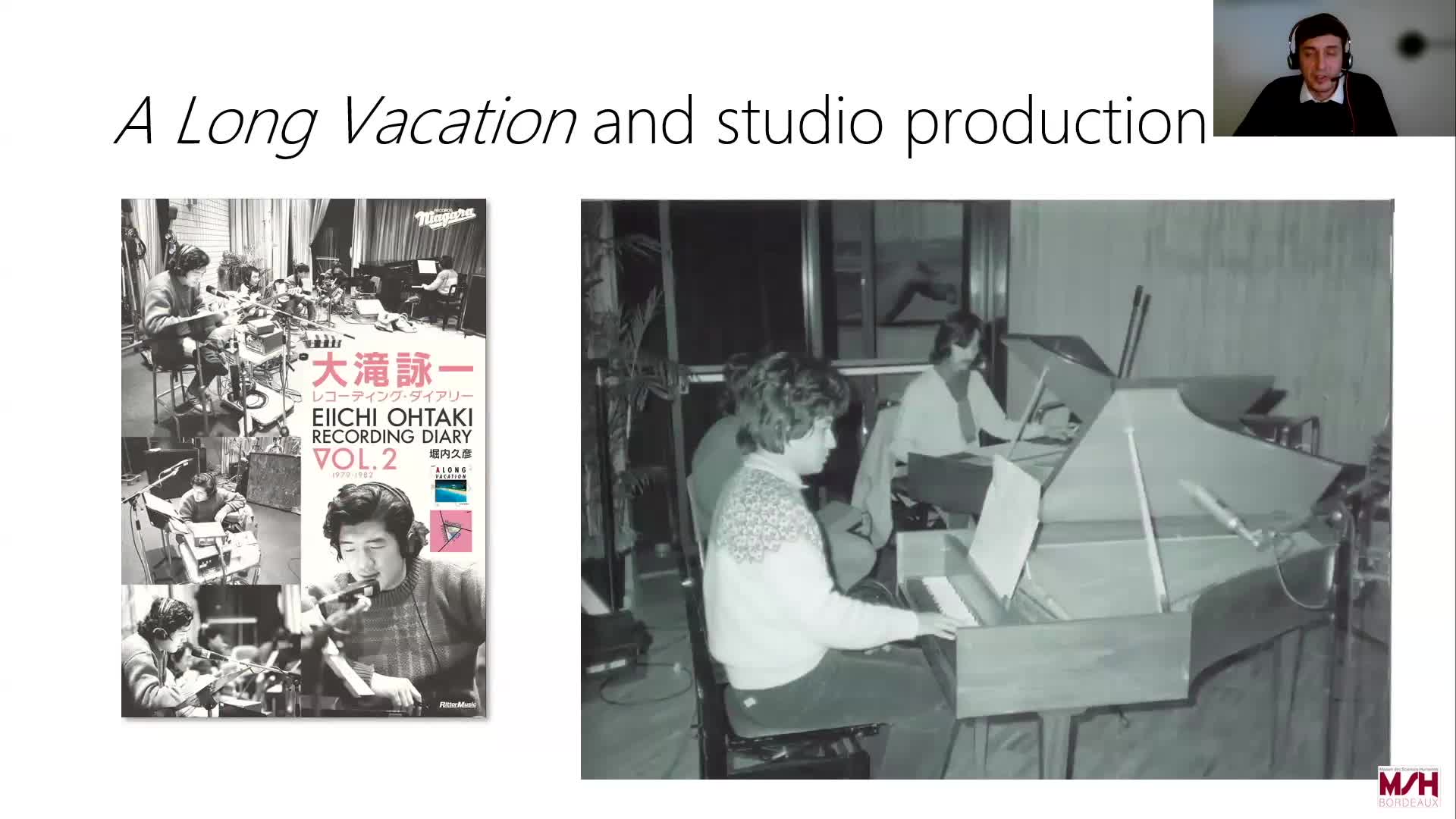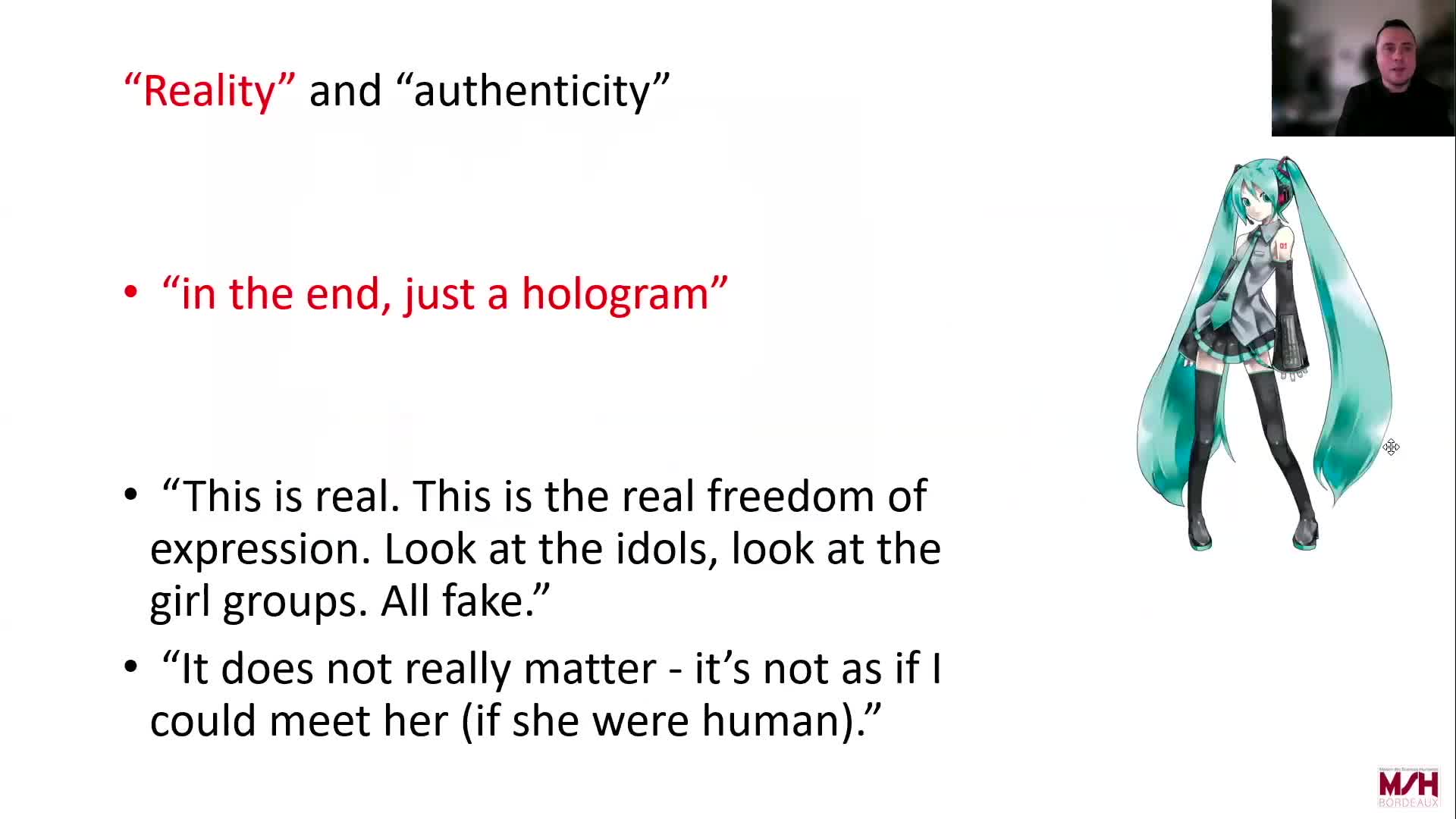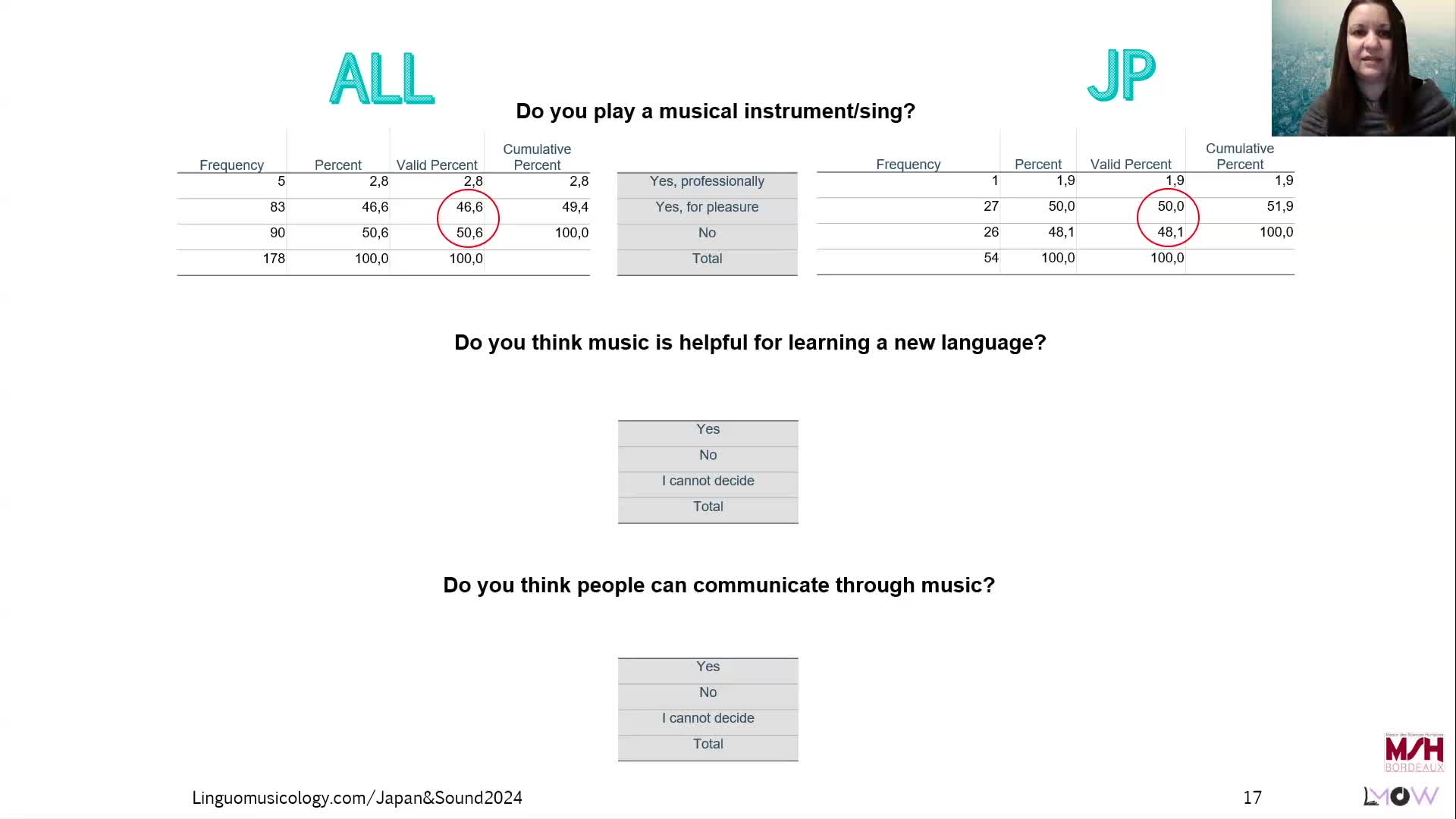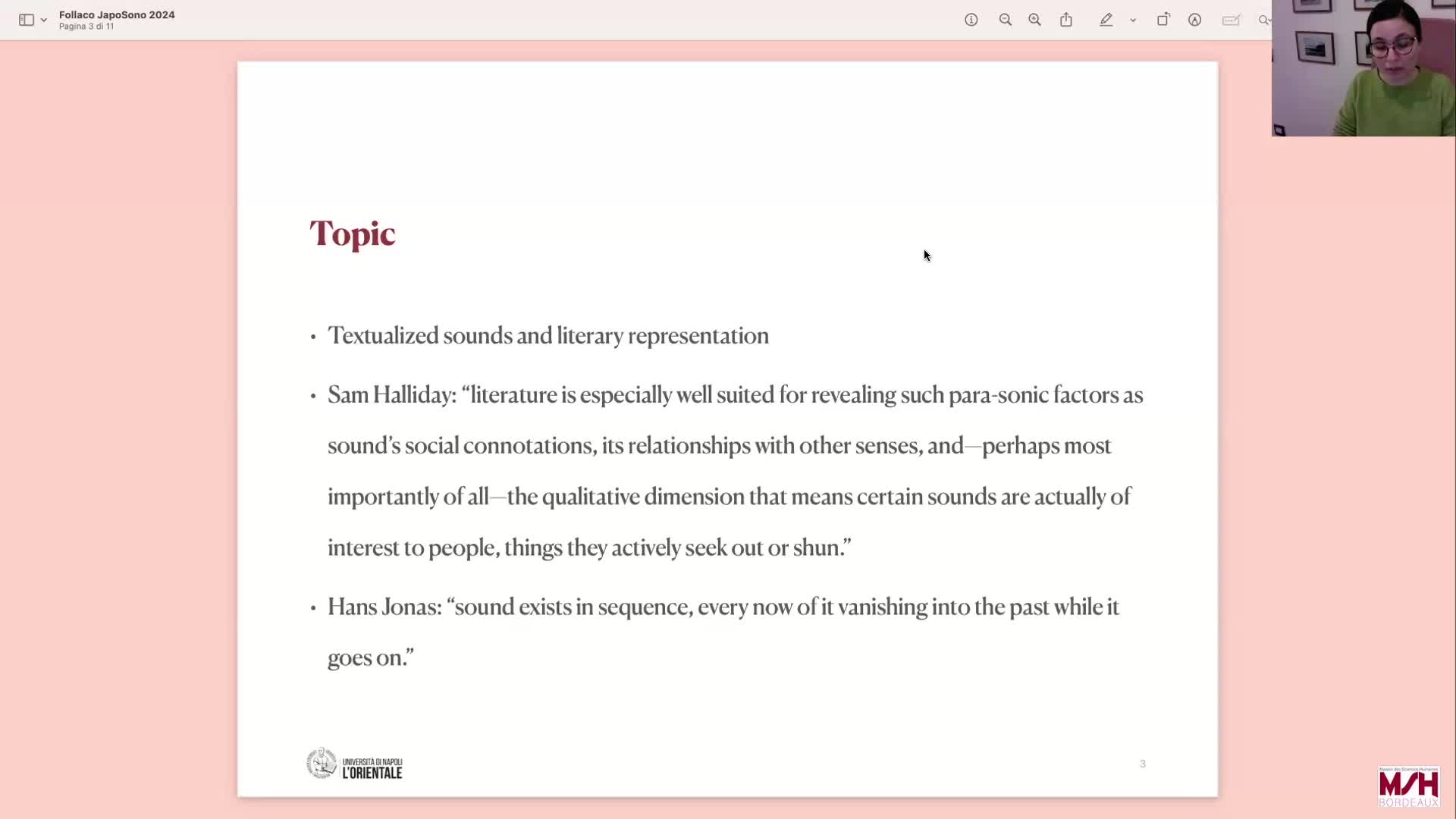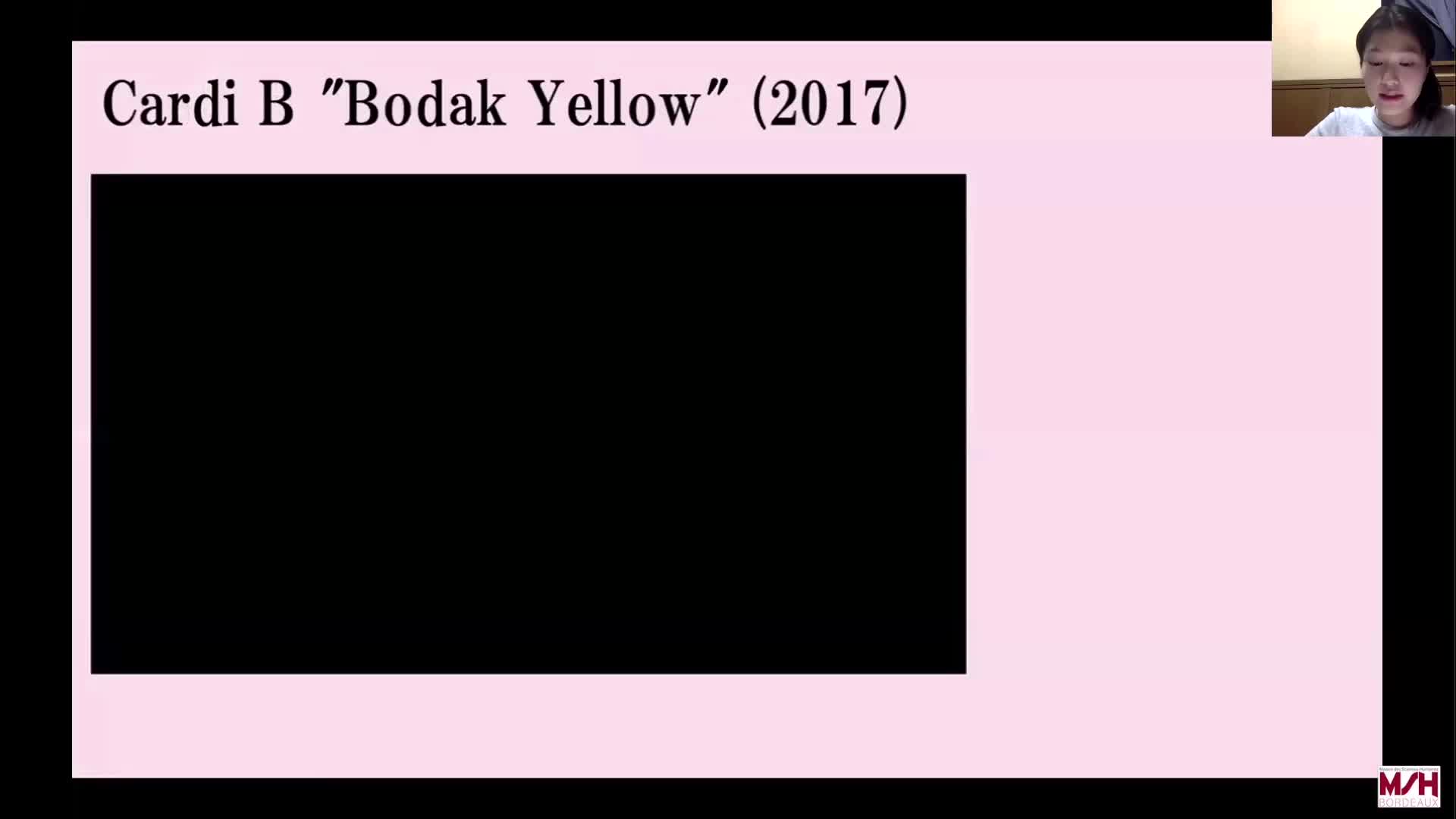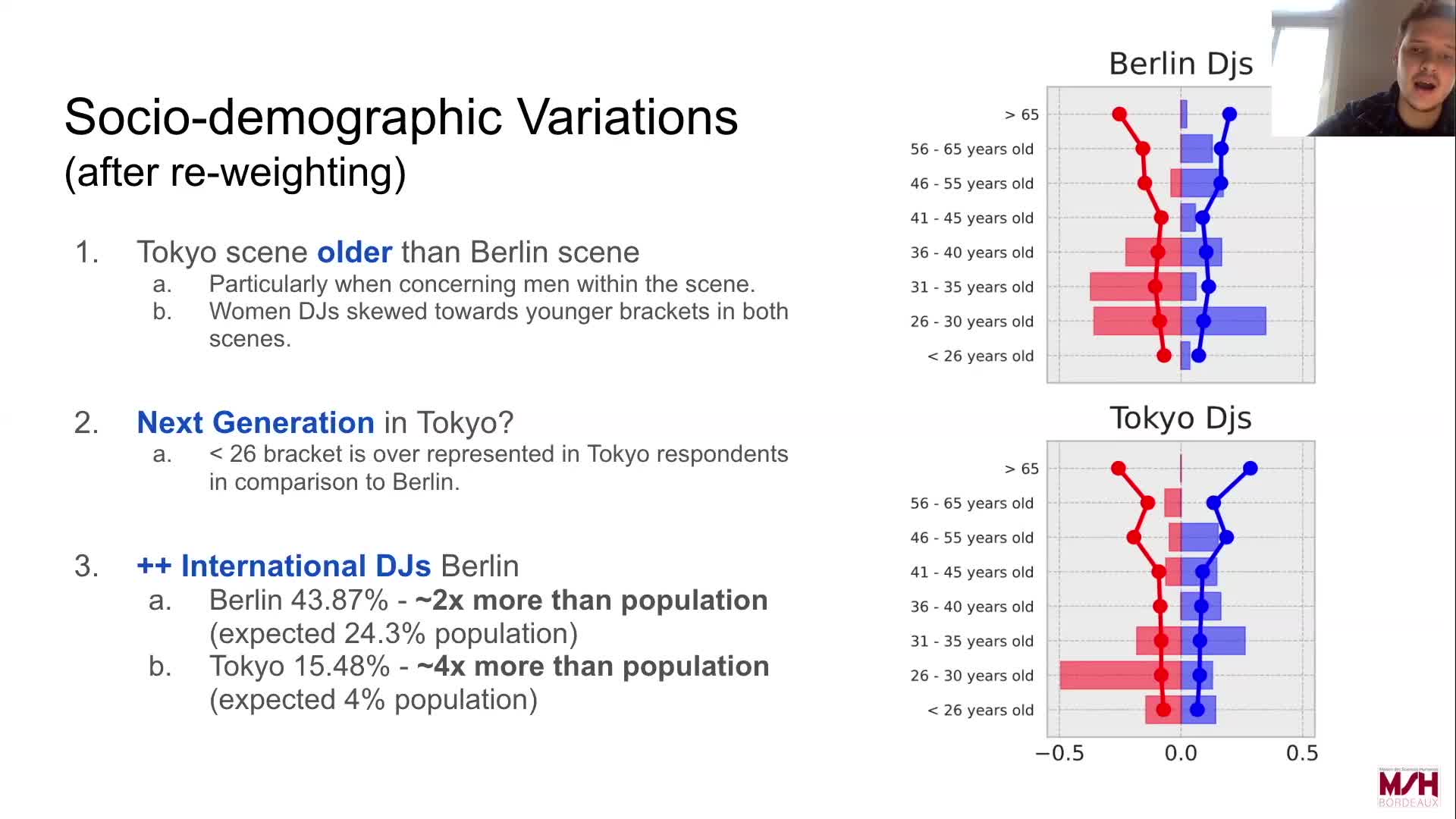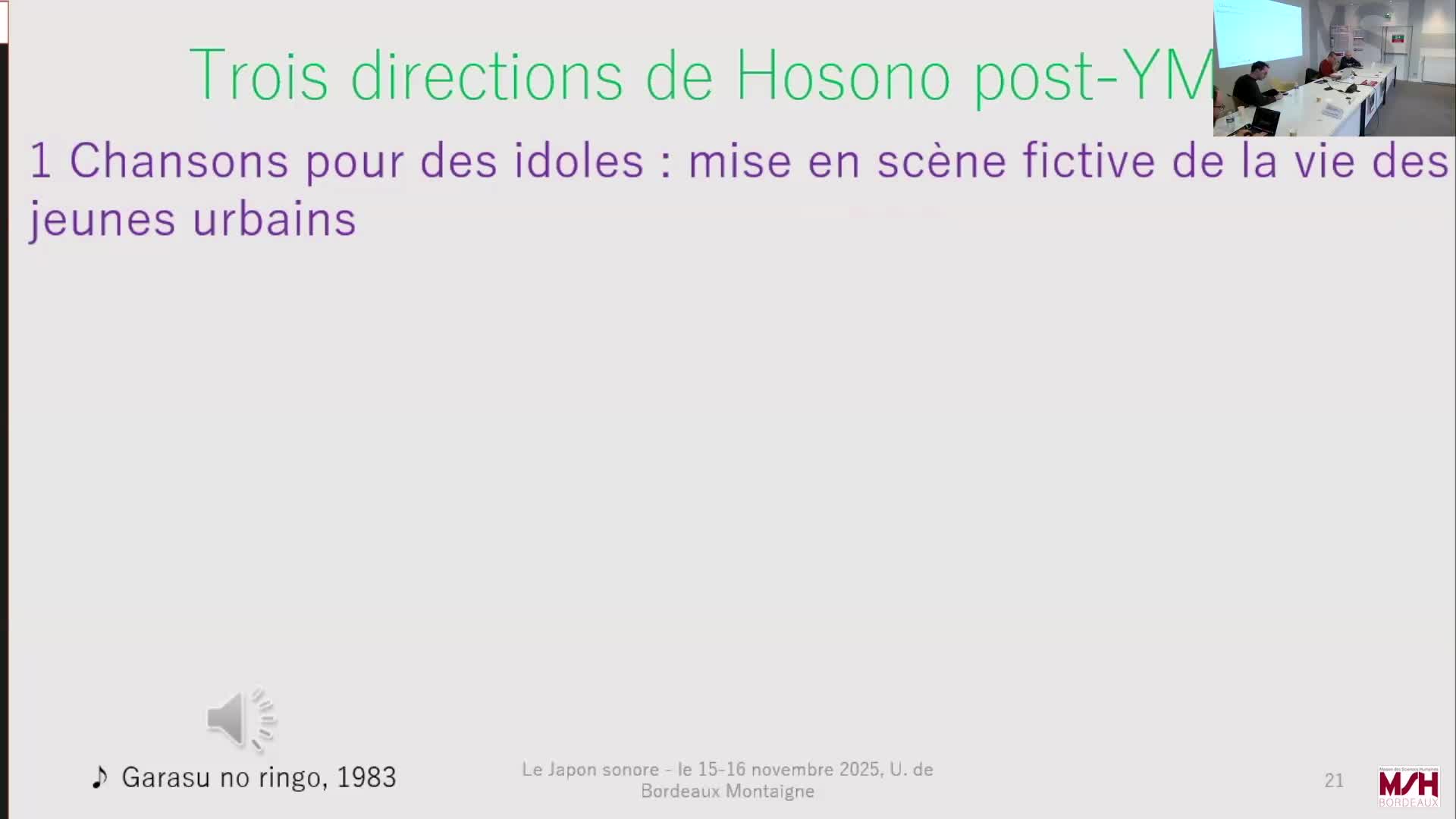Notice
Masculinities and femininities of Japanese singer-songwriters
- document 1 document 2 document 3
- niveau 1 niveau 2 niveau 3
Descriptif
Aya Hoshikawa, "Masculinities and femininities of Japanese singer-songwriters"
Panel 9 – The agentivity of subjects listening to and producing sound
The purpose of my presentation is to examine the gender norms surrounding Japanese singer-songwriters in relation to discussions of masculinity and femininity. In (Hoshikawa, 2024), it was shown that Japanese female singer-songwriters are often assigned specific gender roles when communicating with male fans, and that the industrial structure of Japan’s unique performance space, live house, is behind this. One of the points to be reconsidered in my dissertation is the examination of the masculinity of male fans based solely on interviews with cisgender female singer-songwriters. The next aim of my research is to write by more complex way, multi-layered account of gender norms by incorporating the perspectives not only of cisgender female singer-songwriters, but also of live house workers, event organizers and fans themselves, regardless of gender. Raewyn Connell, for example, has argued that “hegemonic masculinity” legitimizes unequal gender relations and is reinforced within certain femininities (Connell, 1995; Hirayama, 2024). My recent research has found that young singer-songwriters in Japan face issues of gender norms regardless of their gender or performance space. At the same time, their fans are also asking themselves on a daily basis how they should gaze singer-songwriters and how they should behave. This presentation will explore the issues of gender norms in Japanese performance spaces.
Colloque "Le Japon sonore : modernité, constructions sociales, rapports de force / Japan and sound: modernity, social constructs and power relations" 14-16 novembre 2024, organisé par Jeremy Corral (UMRU 24140 D2IA, Université Bordeaux Montaigne) et par Chiharu Chûjô (EA 4186-IETT, Université Jean Moulin Lyon 3).
More informations: https://mshbordeaux.hypotheses.org/10930
Thème
Dans la même collection
-
Clôture du colloque / Closing comments
CorralJeremyChujoChiharuColloque "Le Japon sonore : modernité, constructions sociales, rapports de force / Japan and sound: modernity, social constructs and power relations"
-
The ear is a weapon: Soundscapes of racial violence in Tokyo, 1923
Colloque "Le Japon sonore : modernité, constructions sociales, rapports de force / Japan and sound: modernity, social constructs and power relations"
-
Recorded sound and the development of ideological control: Changes in Japanese cinema since 1931
Colloque "Le Japon sonore : modernité, constructions sociales, rapports de force / Japan and sound: modernity, social constructs and power relations"
-
Tomorrow on cassette: Japan’s tape jams in the new media age
Colloque "Le Japon sonore : modernité, constructions sociales, rapports de force / Japan and sound: modernity, social constructs and power relations"
-
Re-sounding Shōwa: Ōtaki Eiichi’s A Long Vacation and nostalgia for 1980s Japan
Colloque "Le Japon sonore : modernité, constructions sociales, rapports de force / Japan and sound: modernity, social constructs and power relations"
-
Multivocality and the vocaloid fan canon
Colloque "Le Japon sonore : modernité, constructions sociales, rapports de force / Japan and sound: modernity, social constructs and power relations"
-
The music of words of Japan: The relationship between human language and music
Colloque "Le Japon sonore : modernité, constructions sociales, rapports de force / Japan and sound: modernity, social constructs and power relations"
-
"Did anyone hear what I said?": Acting through sound in Higuchi Ichiyō’s writing
Colloque "Le Japon sonore : modernité, constructions sociales, rapports de force / Japan and sound: modernity, social constructs and power relations"
-
Gyaru and hip-hop: Shaping a sound-based identity
Colloque "Le Japon sonore : modernité, constructions sociales, rapports de force / Japan and sound: modernity, social constructs and power relations"
-
La musique électronique à Tokyo : une scène (définitivement) analogique ?
PoirouxJérémieColloque "Le Japon sonore : modernité, constructions sociales, rapports de force / Japan and sound: modernity, social constructs and power relations"
-
Save the noise: Supportive acts and works in Japanese noise music in the COVID-19 pandemic
Colloque "Le Japon sonore : modernité, constructions sociales, rapports de force / Japan and sound: modernity, social constructs and power relations"
-
Le tournant de Hosono Haruomi vers la musique ambient dans les années 1980-1990 : concept de « kank…
Colloque "Le Japon sonore : modernité, constructions sociales, rapports de force / Japan and sound: modernity, social constructs and power relations"




